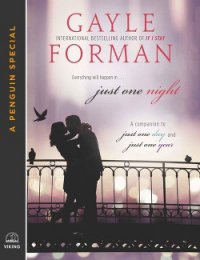The Plantagenet Prelude - Plaidy Jean (книги серия книги читать бесплатно полностью .TXT) 📗
‘A curse upon all the false varlets I have maintained!’ spat out Henry. ‘They have left me long exposed to the insolence of this low-born cleric and have not attempted to relieve me of him.’
He strode angrily to the door, and eagerly they fell back to let him pass.
When he had gone there was a deep silence in the room.
Reginald FitzUrse, a man of some ambition, asked three of his friends to come to his chamber where they might talk in secret. These three were William de Tracy, Hugh de Morville and Richard Brito.
When they were there and he was sure of secrecy, FitzUrse said: ‘It was a command from the King. He looked straight at me when he said those words. He is commanding me to kill Thomas Becket.’
‘I believe that to be so,’ replied Hugh de Morville. ‘I believe he would reward well those who rid him of the troublesome priest.’
‘I have asked you here that we might share this honour of doing service to the King. He will not forget us, depend upon it.’
‘The Archbishop is at Canterbury surrounded by his friends.’
‘That should not deter us.’
‘What should we do then?’
‘First we go to Canterbury and there we will make our plans.’
‘Then,’ said Richard Brito, ‘why do we not set out without delay?’
‘We will leave this night for Canterbury,’ answered Reginald FitzUrse.
Within a few hours they were on their way to the coast to take ship for England.
On the 28th of December the four knights came to Saltwood Castle and there they rested. They had collected a party of men known to be enemies of the Archbishop, those who thought they could profit by pleasing the King, and there they conferred together. They would incite the people to march on the Archbishop’s palace.
They soon discovered that this was impossible as the people were fervently on the side of the Archbishop and nowhere more than in his own district. They therefore marched on alone.
Thomas was in the refectory talking with some of the monks and clerics as was his custom. They had been trying to urge him to escape, for they were well aware that the King’s knights were in the neighbourhood endeavouring to inflame the people against him.
He had awakened that morning with a presentiment of disaster and had said that he believed his end was very near. Those who loved him implored him to leave. They were but six miles or so from Sandwich; a boat could be procured. The King of France would offer him hospitality.
‘Nay,’ said Thomas. ‘Not again. I know the time has come and it is God’s will that I stay to meet my fate.’
While they sat there his seneschal came in to announce the arrival of four knights. They stood before him looking at him insolently. He knew them all by name for they had served him when he had been the Chancellor.
‘God help you,’ said FitzUrse and his voice was exultant.
‘Have you come here to pray for me then?’ asked Thomas.
‘We come with a message from the King. Will you hear it now or in private?’
‘At your pleasure,’ answered Thomas.
‘Nay, at yours.’
Thomas saw that they were all unarmed, yet he read murder in their eyes and he thought: The King has sent them to kill me.
‘It shall be at your pleasure,’ he said, for he had no will to stop their designs. Rather did he welcome them, so certain was he that his martyrdom was at hand.
‘You have offended the King,’ said FitzUrse. ‘You have broken your agreement with him. You have threatened excommunication of the King’s friends and roamed the country rallying people that they might act against the King.
Our lord the King commands that you go at once to his young son, King Henry, and swear fealty to him and make atonement for your crimes against our great King, Henry I.’
‘There is no man – saving young Henry’s own father – who loves him more than I. I have none but warm and loyal feelings for him. The welcome given me by my friends has been mistaken for disloyal demonstrations against the King and I am ready to prove this in any court. Any excommunication is decreed by the Pope. As for those who have taken part in the coronation of the King’s son I have no jurisdiction over the Archbishop of York, but if the Bishops of London and Salisbury who shared in that ceremony ask pardon and stand trial for their actions they will be absolved. I have had the King’s leave to punish those who invade my office.’
‘You accuse the King of treachery when you say he allowed you to suspend those who took part in a coronation ordered by himself,’ said FitzUrse.
‘I do not charge the King with treachery, but you know of our agreement.’
‘From whom do you hold your Archbishopric?’ demanded FitzUrse.
‘From God and the Pope.’
‘And not from the King?’
‘By no means. We must render to the King that which is the King’s and to God the things that are God’s.’
The knights were nonplussed and hated him the more for confounding them.
Thomas said softly: ‘You cannot be more ready to strike than I am to suffer. Understand this. I did not return to fly again.’
The knights looked at each other in bewilderment.
FitzUrse, the leader, cursed himself for having no weapon at hand and for a moment wondered whether he would snatch the crozier and batter the Archbishop to death with that.
Then he turned and hurried from Thomas’s presence, the others following him. Thomas’s friends were terrified. They knew that the four knights were bent on murder.
‘I wish to go into the cathedral to pray,’ said Thomas; and it occurred to several of the monks that he had the air of a bridegroom going to his marriage.
He left the palace with a very few of his monks. Terror had invaded the place, and it occurred to Thomas that his enemies would kill him before he could reach the cathedral.
He came in by the north transept and as he did so the four knights appeared at the far end of the cloister. Thomas moved towards the altar and in the gloom was not seen by the knights; but the monks who had accompanied him ran to shelter in various parts of the cathedral. Only one cleric, Edward Grim, remained beside him.
They shouted: ‘Where is the traitor, Becket?’
‘Here,’ cried Thomas. ‘No traitor but a priest of God. If you seek me you have found me. What do you wish of me?’
So calm was he that Morville and Tracy were suddenly afraid for they knew they were in the presence of a great man.
Tracy called: ‘Fly, or you are a dead man.’
‘I do not fear your swords,’ answered Thomas. ‘I welcome death for the sake of the Lord and the freedom of the Church.’
Aware that the others were wavering, FitzUrse cried: ‘You are our prisoner. You will come with us.’
‘I will not,’ answered Thomas.
FitzUrse stretched out to seize his pal. ‘Do not touch me, pander,’ said the Archbishop.
This enraged FitzUrse who waved his sword over the Archbishop’s head.
Thomas knew that the moment had come. He murmured: ‘Unto Thy hands, oh Lord...’ as FitzUrse shouted: ‘Strike!’
Tracy lifted his sword and the faithful Edward Grim tried to ward off the blow. His arm was severed from his body and he fell fainting to the ground. The sword came down in Thomas’s head and cut off the tonsured part of his crown.
FitzUrse came in and delivered another blow which sent Thomas to his knees. Brito struck out with his sword and Thomas fell dying to the floor.
FitzUrse cried: ‘The deed is done. Let us be off, comrades. This traitor will never rise again.’
His body lay on the stones and Osbert, his chamberlain, came and wept over him. Then he cut off a piece of his surplice and covered his master’s face.
The soldiers were ransacking the palace and the monks were in hiding. It was as though a terrible darkness had fallen over the cathedral; and when it was quiet and the ravagers had gone, and the news of what had happened had spread through the town, people came to the spot where he lay and they wept and knelt and called him,




